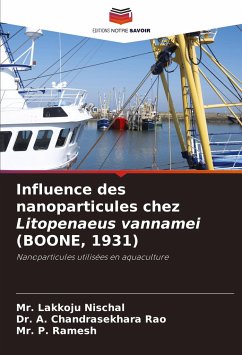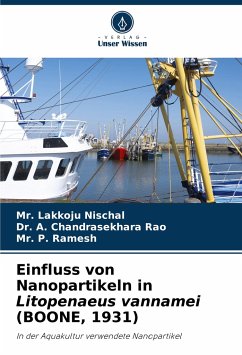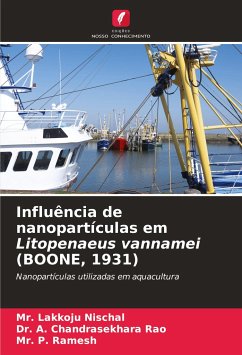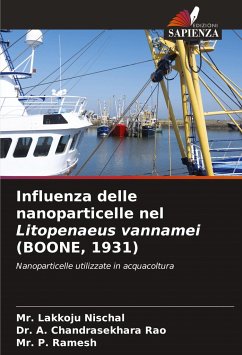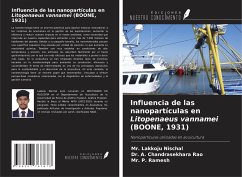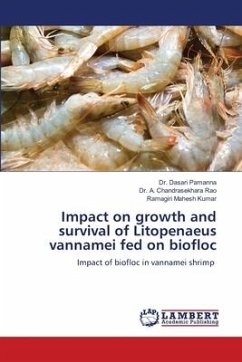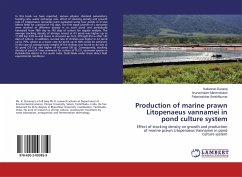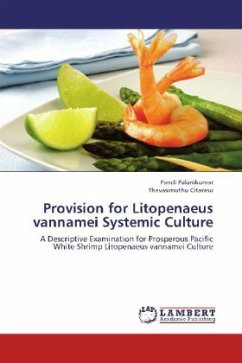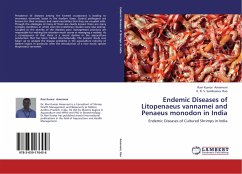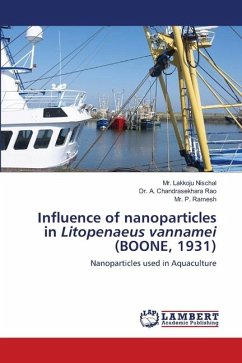
Influence of nanoparticles in Litopenaeus vannamei (BOONE, 1931)
Nanoparticles used in Aquaculture
Versandkostenfrei!
Versandfertig in 6-10 Tagen
40,99 €
inkl. MwSt.

PAYBACK Punkte
20 °P sammeln!
Nanotechnology has enormous potential to provide innovative improvements to aquaculture systems in farm management, increase efficiency and to reduce our impact on the environment, as a necessity impacting our ability to feed the 7 billion plus inhabitants of the planet. Because of their small size, nanomaterials possess very high exposed surface area per unit volume which enhances their chemical reactivity. They are also reported to be very stable under conditions of high temperature and pressure. These are easily taken up by the gastrointestinal tracts in animals and so are more effective th...
Nanotechnology has enormous potential to provide innovative improvements to aquaculture systems in farm management, increase efficiency and to reduce our impact on the environment, as a necessity impacting our ability to feed the 7 billion plus inhabitants of the planet. Because of their small size, nanomaterials possess very high exposed surface area per unit volume which enhances their chemical reactivity. They are also reported to be very stable under conditions of high temperature and pressure. These are easily taken up by the gastrointestinal tracts in animals and so are more effective than bulk materials at lower doses. Different types of nanotechnology-based systems have been employed in aquaculture to increase its production, efficiency and sustainability. Disease outbreak is one of the main obstacles for the sustainability and development of aquaculture. In this context, nanotechnology has an enormous role to play, linked to provide novel perspectives related to disease diagnosis and health management.



